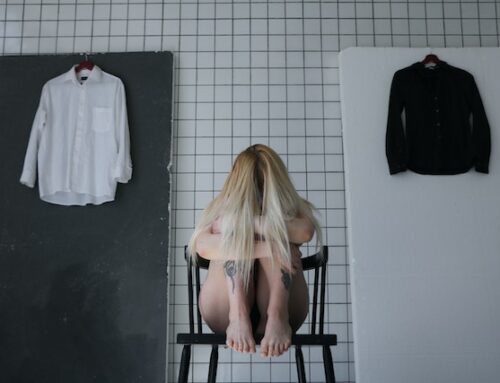Regulated
October 20, 2017
As I turned on the heat for the first time this fall, I felt thankful for the cold weather that has finally come. It allows me to feel clear. Crisp. Calm.
After experiencing one of Michigan’s hottest summers this year, it is much-needed relief. We had temperatures reaching high into the 90s, with over 80 percent humidity, for what felt like months. And then, we experienced an Indian summer in September, with temperatures reaching high into the 80s, with over 70 percent humidity, that lasted weeks. During both periods of time, I learned that excessive heat is a trigger for my SPD too.
I’ve always loved summer, and I love the heat from the sun. What I don’t love is the heat so intense that it feels as if you’re walking through the sun. Stifling. Suffocating. Sweltering.

Already sensitive to elements in my environment, I overheat quickly when in excessive heat. It’s as if my body doesn’t process how quickly my temperature rises in order to cool itself down, and before I know it, I’m overloaded. Melting down.
I have no energy. My body feels weighed down, like I have wet sand in my veins. My thoughts become disconnected. I become unable to focus. I feel nauseous. I have no appetite and have a difficult time digesting food. I get a headache both in the back and in the front of my head.
On two different occasions during the excessive heat this summer, I was spending time with a friend, and then, each time, as soon as we began walking to a restaurant near my house, I became quickly overloaded, disoriented. Then heavy, sick.
The first time it happened, I tried to dismiss it as being tired and buzzed from the cocktails I enjoyed. But I knew what it was like when I had too much alcohol, and this was different. I felt drunk with heat.
As soon as I got home, I instinctively took two ice packs from the freezer, reclined in my chair, and put one on my forehead and one under the back of my head, near my brain stem, and I started to cool down.
The second time it happened, I first thought better of walking to a restaurant, but my friend and I were hungry, and I didn’t have anything at the house for us to eat, so we walked to a restaurant again.
As we were walking, I began to notice myself trail off. My thoughts weren’t connecting. I began to feel the heat within. An internal oven. Like there was fire inside, and I needed to evacuate.
When we sat down at the restaurant, I tried to engage, but the heat had won. I was too nauseous to eat, and I was too overloaded to communicate. My friend said that, at one point, she started telling me a story, and I just looked away. I’m not mad at you, she said on our walk home, It was just funny because you totally ignored me even though I was talking directly to you.
My friend saying I became disconnected allowed me to make the connection between my processing and the heat. When I looked it up, sure enough, it has been researched that children with SPD have a sensitivity to heat resulting in emotional distress.* The same thing that was happening to me.
The next week, my friend was over again, and we were discussing how nice it was that the weather had cooled down a bit. I told her about what I read. About how what happened to me in the heat is connected to my processing.
Are you sure you weren’t just dehydrated, she questioned.
No, I responded, I drank over 64 ounces of water that day, but it makes sense why it happens to me. It’s because my brain doesn’t process the heat just like it doesn’t process other sensory stimuli, I said.
I guess it is a sensory issue, she said, giving me some understanding.
I know she tried to see what I was saying. But that’s the thing about dealing with something that is unseen. To others, it doesn’t exist.
At least for me, it finally does.
Even though I have to research child SPD to learn about my adult SPD because there aren’t enough resources for adults, I at least now know that my processing is different, and I can regulate accordingly.
I know it happens to others, and I’m not alone. I know that all along, it has literally been all in my head.
And for the first time in my life, I finally know I’m not crazy.
And there is nothing cooler than that.
*Though the article focuses on children with SPD, it is true for adults with SPD too.










